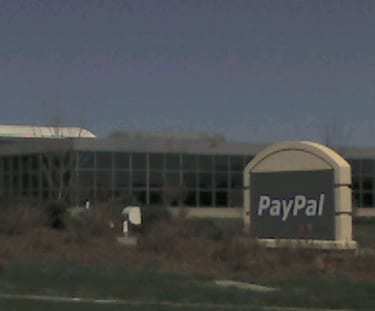 The telecom company had stated that it was launching the first service of its kind in Canada.
The telecom company had stated that it was launching the first service of its kind in Canada.
A mobile payments battle has developed between Rogers Communications and PayPal, as the latter has alleged that the former’s claims about being the first to offer this service in Canada is untrue.
The new Rogers and CIBC service, Suretap, will be the first to use near field communication technology.
That is true, as it is the first time that a mobile payments system will be using NFC technology in that country. However, Rogers had gone on to say that it is also the first to offer smartphone credit card transactions in the country.
According to PayPal, credit card transactions over smartphones have already existed in Canada.
The claim that had been made by CIBC, last week, by the senior executive vice president, David Williamson, was that “We’re pleased to make history in mobile commerce in Canada by completing the country’s first mobile credit card transaction.”
The vice president of emerging business at Rogers, David Robinson, said that “Making the first mobile credit card payment means that we are one step closer to allowing Canadians to store everything they need, securely, in their smartphone.”
However, a statement from PayPal has pointed out that “Canadians have been able to use PayPal to pay directly from their smartphones …since earlier this year.” The company was adamant that this makes using credit cards for mobile payments something that already existed in the country. PayPal does not, however, use NFC technology, which is what makes the offering from Rogers unique and a first in Canada.
PayPal isn’t the only mobile payments system that exists in Canada. Starbucks is also already allowing customers to pay for their purchases with their smartphones. According to the coffee company, that services has been highly popular in the country, generating tens of millions of transactions. Again, NFC is not used in that instance.
It is likely that the debate over these mobile payments claims by Rogers and CIBC, which are being refuted by PayPal, will run right through 2013, as additional telcos and banks launch their own services.
